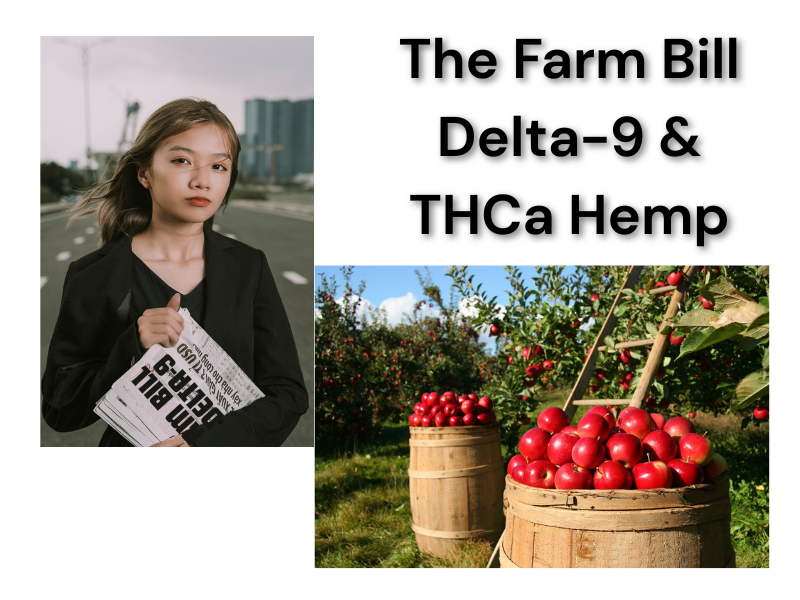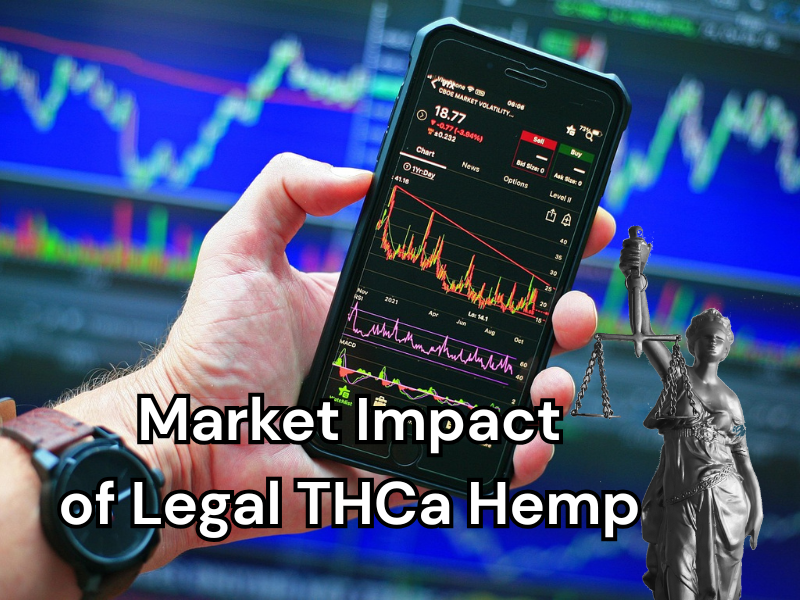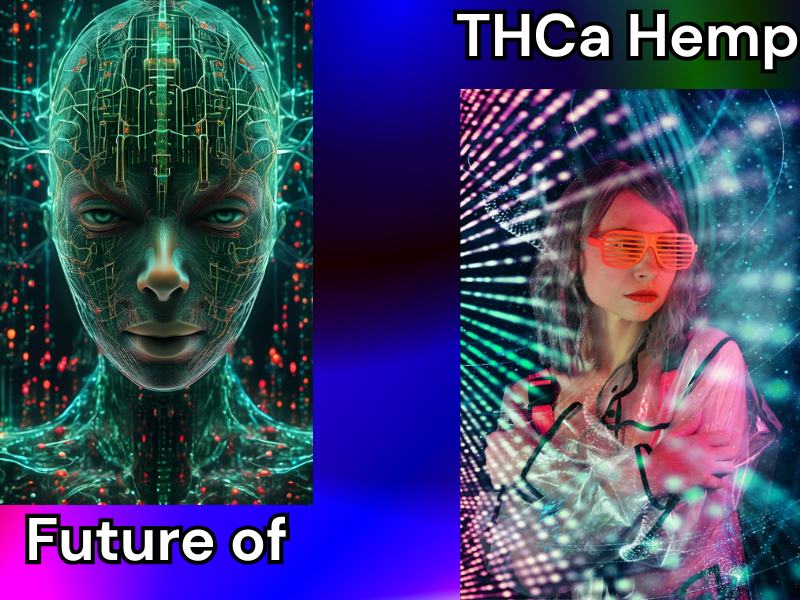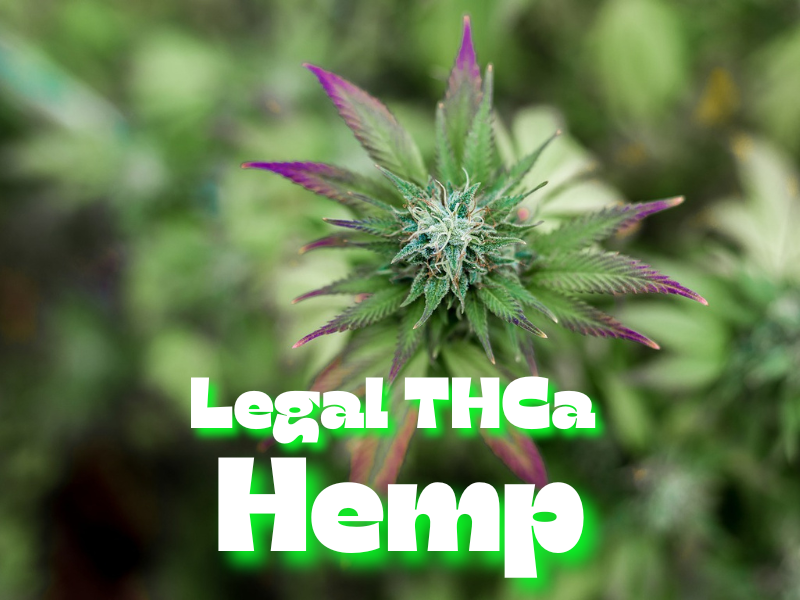Hemp is like the cool cousin in the cannabis family that seems to pop up everywhere – from clothes and food to beauty products and even construction materials. It’s been cherished for its versatility and has been cultivated for centuries. But when it comes to hemp, many people get confused about its relationship with THC, and most notably, THCa.
To clear things up, let’s start with the basics. THC, or tetrahydrocannabinol, is the compound that gets you high, However, it doesn’t occur naturally in cannabis. Then we have THCa, which is like THC’s chilled-out sibling that doesn’t actually cause a high until it’s heated and transformed into THC. This conversion process is why you can munch on raw cannabis and not feel anything (although I’m not suggesting you should do that, maybe just stick to salads).
The landscape for hemp in the U.S. changed dramatically with the 2018 Farm Bill. This piece of legislation opened up new avenues by legalizing hemp, defined as cannabis with less than 0.3% Delta-9 THC on a dry weight basis. The specifics around Delta-9 are what make the situation with THCa so interesting, as it wasn’t explicitly mentioned.
So why all the buzz around hemp with THCa? It’s simple. While hemp with low Delta-9 THC levels is legal, many hemp varieties contain THCa and can potentially provide that euphoric feeling many seek without immediately tripping on legal wires. This has led to a surge in interest among consumers looking for alternative avenues to experience their cannabis without the associated legal risks. It’s like finding a loophole into a club gig your favorite band is playing at without busting the bank on tickets.

Exploring the Loophole: The Farm Bill and Delta-9 THC
The 2018 Farm Bill was a game-changer for hemp, drawing a clear line between marijuana and hemp based on Delta-9 THC content. In layman’s terms, as long as Delta-9 THC stayed below 0.3% in any hemp product, it was good to go. That’s how hemp hit the mainstream and started appearing in everything from smoothies to skincare.
But here’s where it gets interesting. The bill only talked about Delta-9 THC, totally skipping over THCa. So, you could say it left this backdoor open for THCa products. While Delta-9 is tightly regulated, THCa doesn’t get the same attention—allowing some hemp products to slide through legal loopholes like a sneaky ninja.
Specific Wording That Helps Govern the 2018 Farm Bill
“(a) Definition of Hemp.—Section 297A of the Agricultural Marketing Act of 1946 (7 U.S.C. 1639o) is amended—(1) by striking subsection (b);(2) by redesignating subsections (c) through (f) as subsections (b) through (e), respectively; and(3) by inserting before subsection (b) (as so redesignated) the following:(a) Definition of Hemp.—The term ‘hemp’ means the plant Cannabis sativa L. and any part of that plant, including the seeds thereof and all derivatives, extracts, cannabinoids, isomers, acids, salts, and salts of isomers, whether growing or not, with a delta-9 tetrahydrocannabinol concentration of not more than 0.3 percent on a dry weight basis.“
For people curious about hemp’s legal status, understanding this gap is key. THCa can sneak in under the radar because in its non-heated form, it doesn’t act like the psychoactive THC people worry about. This technicality has companies excited about creating new products that technically comply with the law but still offer similar effects once the conversion happens.
This situation has sparked quite a controversy. Some folks see it as exploiting a loophole, while others argue it’s just innovation within the legal limits. Lawmakers and consumers are still sorting out where they stand, which makes it a pretty dynamic space to watch. This complexity is precisely what makes the hemp industry so fascinating right now. It’s not just about waving a magic wand but about navigating the fine print with strategic flair.

THCa: Legal Status and Market Dynamics
Right now, the legal situation around THCa seems like something ripped from a legal drama, full of twists and turns. Across the U.S., THCa’s status isn’t exactly crystal clear, blurring more lines than a soap opera love triangle. Thanks to the Farm Bill’s narrow focus on Delta-9 THC, THCa mostly sneaked in the back door — giving it a sort of legal permission slip to stick around in the market.
For the folks out there looking for a legal way to chill, hemp with THCa has become pretty popular. It’s like finding a little pocket of calm in the storm, especially in states where weed hasn’t been fully rolled out yet. Pop into a shop, grab your THCa-rich product, and you can experience similar effects without putting anything on your criminal record.
As more people catch on to the THCa trend, the market’s been picking up speed fast. Brands are rushing to develop new goods, eager to meet the demand of curious consumers. This excitement creates lots of buzz in the hemp space, but also poses challenges for regulators trying to get out in front of this landslide.
Given the varying laws across states, THCa finds itself in a limbo — not super legal, not outright banned in many areas. It sparks a state versus federal law dance that can leave companies and customers scratching their heads over what’s allowed where. It’s a classic case of being stuck in the middle, with everyone watching to see which way the scales will tip.

Future Prospects: Addressing the Hemp With THCa Oversight
The legal limbo that THCa sits in probably won’t last forever. There’s momentum to address this gray area of regulatory regulation, with lawmakers feeling pressure from all sides. Industry folks and consumers alike are keeping their eyes peeled for changes that could impact how THCa is perceived and regulated.
Some states are already stepping up, trying to clarify what’s what and set clearer boundaries. But these efforts sometimes clash with federal guidelines, creating a bit of a legal tug-of-war. And, let’s face it, the legal scene never changes overnight. Still, the hope is that all this will offer some grounding for hemp businesses and a sense of security for buyers.
There’s also a buzzing conversation about whether the Farm Bill might get retooled to shut down existing loopholes or whether it will stay flexible, allowing the hemp industry room to innovate. Voices from both sides are vocal, presenting arguments about consumer safety, market potential, and the economic benefits of a more open market approach.
Looking ahead, it’s a waiting game with a dose of advocacy sprinkled in. Whether you’re a hemp enthusiast or just curious about the industry, staying informed is your best bet. Public awareness and discourse will likely play crucial roles in shaping how these laws evolve.
No matter what, the story of hemp, THCa, and the Farm Bill is far from over. Observing how the legal landscape shifts will be like watching a thrilling season finale with everyone wondering how it’s all going to wrap up.

